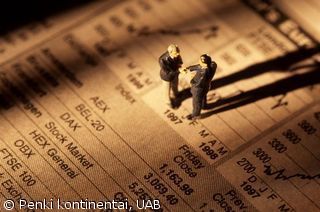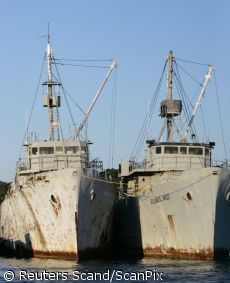OPEC Planning to Maintain Oil Quotas as U.S. Winter Nears
Published:
24 September 2003 y., Wednesday
OPEC, supplier of a third of the world's oil, is planning to maintain output quotas through the end of the year as sabotage limits Iraqi exports and demand rises because of winter from the U.S. to Japan, officials said.
The group meets today in Vienna. Ministers from Saudi Arabia, Iran, Kuwait, the United Arab Emirates, Algeria, Venezuela and Indonesia have signaled no change is needed because prices are within their target of $22 to $28 a barrel.
``OPEC has no immediate need to act,'' said Chris Brown, director of energy consulting at Wood Mackenzie Consultants Ltd. in London. ``We could see a cut in the next two months depending on how more Iraqi oil comes on line. The last thing OPEC wants is a glut forming.''
Crude oil in London has averaged $28.29 a barrel in 2003, $10 more than the 1990s average, boosting income within the Organization of Petroleum Exporting Countries and profit at oil companies such as BP and Exxon Mobil Corp. Prices may fall in 2004 as Iraqi exports and rising output in Russia overwhelm demand, according to a Bloomberg News survey.
Iraqi Oil Minister Ibrahim Mohammad Bahr al-Ulum traveled to Vienna for the gathering, where Venezuela objected to the country's participation in the formal meeting. The minister was appointed with the help of the U.S.-led authority in Baghdad, and Iraq's interim government has yet to be recognized by the United Nations.
Concern is mounting among ministers that prices will decline in 2004, and Algerian and Kuwaiti officials said OPEC may have to assemble again in December. Oil prices have dropped 15 percent in the past month for OPEC's benchmark, to $24.82 a barrel.
Šaltinis:
Bloomberg
Copying, publishing, announcing any information from the News.lt portal without written permission of News.lt editorial office is prohibited.
The most popular articles
 The finance chiefs from the leading economies met in southern England to discuss measures to deal with the global economic crisis.
more »
The finance chiefs from the leading economies met in southern England to discuss measures to deal with the global economic crisis.
more »
 Environmental projects up for bid at ‘auction floor’ conference in Brussels.
more »
Environmental projects up for bid at ‘auction floor’ conference in Brussels.
more »
 In the United States increasing numbers of men are having vasectomies to avoid any added strain on hard-pressed finances.
more »
In the United States increasing numbers of men are having vasectomies to avoid any added strain on hard-pressed finances.
more »
 Within last year the number of settlement operations made by using AB Bank SNORAS payment cards grew by 21 per cent or twice more than on the market where 10 per cent growth was fixed.
more »
Within last year the number of settlement operations made by using AB Bank SNORAS payment cards grew by 21 per cent or twice more than on the market where 10 per cent growth was fixed.
more »
 The “Erika III” package, aimed at protecting Europe's coasts from maritime disasters and improving passenger and crew safety, was adopted by Parliament on Wednesday.
more »
The “Erika III” package, aimed at protecting Europe's coasts from maritime disasters and improving passenger and crew safety, was adopted by Parliament on Wednesday.
more »
 Improving the transparency and the supervision of the financial system to ensure proper risk management in the banking sector is the aim of legislation approved on Monday by the Economic and Monetary Affairs Committee.
more »
Improving the transparency and the supervision of the financial system to ensure proper risk management in the banking sector is the aim of legislation approved on Monday by the Economic and Monetary Affairs Committee.
more »
 MEPs could back speeding up the rate at which Europe's regional funds are made available.
more »
MEPs could back speeding up the rate at which Europe's regional funds are made available.
more »
 The Commission has taken a humanitarian decision for €700,000 to provide assistance to communities affected by floods in Fiji, the Solomon Islands and Papua New Guinea.
more »
The Commission has taken a humanitarian decision for €700,000 to provide assistance to communities affected by floods in Fiji, the Solomon Islands and Papua New Guinea.
more »
 The international business magazine Euromoney has announced the results of its Private Banking Survey 2009, and Parex banka has received the award for “Best Private Banking Services Overall” in Latvia.
more »
The international business magazine Euromoney has announced the results of its Private Banking Survey 2009, and Parex banka has received the award for “Best Private Banking Services Overall” in Latvia.
more »
 Mass layoffs and inflation are pushing people to seek food aid.
more »
Mass layoffs and inflation are pushing people to seek food aid.
more »